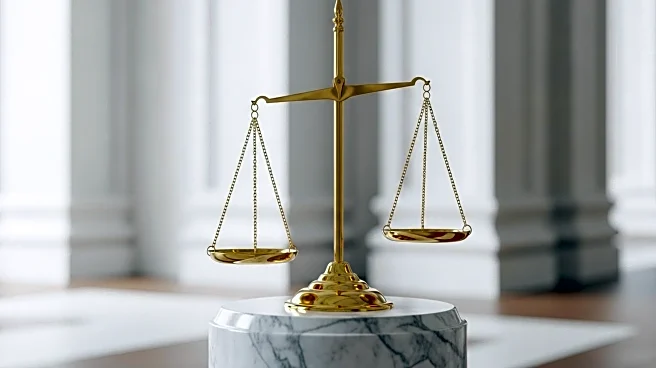What is the story about?
What's Happening?
President Trump has announced his intention to fire Federal Reserve Governor Lisa Cook, citing claims of mortgage borrowing impropriety. Cook has responded by stating that Trump lacks the authority to dismiss her and has no plans to resign. Her term is set to end in 2038. This unprecedented move by Trump could lead to a legal battle, potentially affecting the norms of central bank independence and presidential involvement in monetary policy. Trump's actions are part of his ongoing efforts to push the Federal Reserve to lower interest rates to stimulate economic growth. The situation has influenced financial markets, with longer-dated U.S. Treasury yields rising and the dollar falling. Investors are closely watching upcoming economic indicators, including the U.S. personal consumption prices reading, which is the Fed's preferred inflation gauge.
Why It's Important?
The attempt by President Trump to dismiss a Federal Reserve governor raises significant concerns about the independence of the central bank. If successful, it could set a precedent for increased presidential influence over monetary policy, potentially undermining the credibility of the Fed. This could lead to increased inflation fears and reduced foreign demand for U.S. debt. The financial markets are already reacting, with changes in Treasury yields and currency values. The broader implications could affect economic stability and investor confidence, as the Fed's ability to operate independently is crucial for maintaining balanced economic growth and controlling inflation.
What's Next?
A legal battle may ensue as Lisa Cook challenges President Trump's authority to dismiss her. This could lead to prolonged uncertainty regarding the Federal Reserve's governance and its future policy direction. Investors and policymakers will be closely monitoring the situation, as well as upcoming economic data releases, which could further influence market dynamics. The outcome of this conflict may impact the composition of the Federal Open Market Committee and its approach to interest rate decisions, potentially affecting economic growth and inflation control.
Beyond the Headlines
The situation highlights the ethical and legal dimensions of presidential influence over independent institutions like the Federal Reserve. It raises questions about the balance of power between the executive branch and independent agencies, and the potential long-term shifts in how monetary policy is conducted in the U.S. The controversy may also spark discussions about the safeguards needed to protect the independence of such institutions from political interference.


















